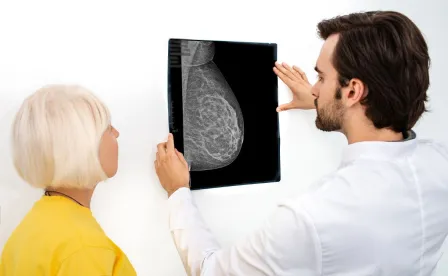The Departments of Labor, Treasury, and Health and Human Services (the “Departments”) recently released guidance for group health plans on required preventive services coverage. The guidance was issued in response to a federal district court decision in a case called Braidwood Management, Inc. v. Becerra that enjoined enforcement of the preventive services mandate for items and services with an “A” or “B” rating from the United States Preventive Services Task Force (“USPSTF”) on or after March 23, 2010. The Departments issued this guidance to clarify the current scope of the preventive services mandate in light of the court’s decision.
What preventive services coverage was required before Braidwood?
By way of brief background, the Affordable Care Act requires non-grandfathered group health plans and issuers to cover the following preventive services and items without participant cost-sharing when provided in-network:
-
Evidence-based items or services that have a rating of “A” or “B” in the current recommendations of the USPSTF
-
Immunizations for routine use recommended by the Advisory Committee on Immunization Practices (ACIP) of the Centers for Disease Control (CDC)
-
Preventive care and screenings for infants, children, and teenagers provided in guidelines issued by the Health Resources and Services Administration (HRSA)
-
Additional preventive care and screenings for women provided in HRSA guidelines
Does Braidwood mean that group health plans are no longer required to cover preventive services?
No. The Braidwood decision applies only to recommended items and services with an “A” or “B” rating by the USPSTF on or after March 23, 2010. All other preventive care requirements remain in place.
This means that non-grandfathered group health plans are still required to cover items and services recommended by the USPSTF before March 23, 2010. In addition, the Braidwood decision did not invalidate preventive services requirements deriving from the ACIP recommendations or HRSA guidelines, so non-grandfathered plans must continue to cover those items and services as well.
What is left unanswered in the Departments’ guidance is Braidwood’s impact on USPSTF recommendations that were issued before March 23, 2010, but have been modified since that date (such as by changing the rating or the designated population). However, the Departments confirmed in the FAQs that they intend to issue additional guidance on this question.
Can group health plans stop covering “A” and “B” preventive services recommended by the USPSTF on or after March 23, 2010?
It depends. The Departments stated in the FAQs that group health plans may stop covering “A” or “B” services recommended by the USPSTF on or after March 23, 2010. However, the Departments emphasized two caveats to that answer:
-
If an item or service was USPSTF-recommended on or after March 23, 2010, but also covered by the ACIP or HRSA guidelines, the preventive services mandate would remain in place for that item or service.
-
Other legal and contractual constraints may require non-grandfathered plans to continue covering “A” and “B” services, notwithstanding the Braidwood For example, the Departments noted that there could be a collective bargaining agreement or, in the case of insured coverage, a state law requiring continued coverage.
The Departments further emphasized that, even if a group health plan can stop covering certain preventive services, 60 days’ advance notice would be required for any mid-year change impacting a group health plan’s summary of benefits and coverage (SBC).
Can high-deductible health plans continue to cover USPSTF-recommended “A” or “B” services without cost-sharing?
Yes, for the time being. By way of reminder, in order for a participant in a high deductible health plan (HDHP) to be eligible for health savings account (HSA) contributions, the HDHP cannot provide coverage for medical items and services before a participant satisfies the IRS minimum deductible (with limited exceptions). One of the permitted exceptions is for ACA-required preventive services. In the FAQs, the Departments confirmed that until further guidance is issued, an HDHP can continue to cover USPSTF-recommended “A” and “B” preventive services without impacting the participant’s eligibility to contribute to an HSA.
Does the Braidwood decision eliminate the requirement for group health plans to cover in-network COVID-19 vaccines without cost-sharing?
No. As described in our prior blog, non-grandfathered group health plans must generally cover COVID-19 vaccines when provided in-network without participant cost-sharing after the COVID-19 public health emergency ends. Since this requirement derives from an ACIP recommendation, which the Braidwood decision did not invalidate, the requirement remains in place.
Takeaways for group health plan sponsors and employers?
The situation remains fluid as the Braidwood decision proceeds on appeal. At this time, it is unknown whether the district court (or potentially the Fifth Circuit) will stay enforcement of the district court order pending the appeal, which would return the preventive services mandate to the pre-Braidwood status quo until the appeal is resolved. And, regardless of whether a stay is issued, there is still uncertainty about how the Fifth Circuit (and potentially the U.S. Supreme Court) will decide the underlying merits of the appeal.
Given this uncertainty, plan sponsors may decide to sit tight so they can avoid possibly having to make multiple changes to preventive services coverage over a relatively short period of time as this case plays out.
Law Clerk Tanusha Yarlagadda also contributed to this article




 />i
/>i
